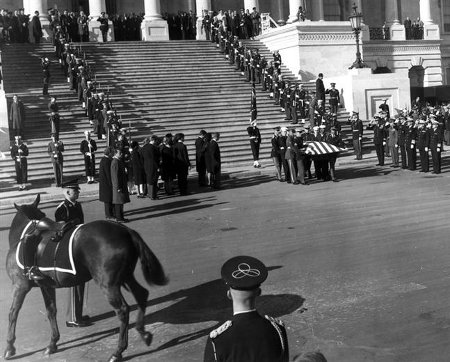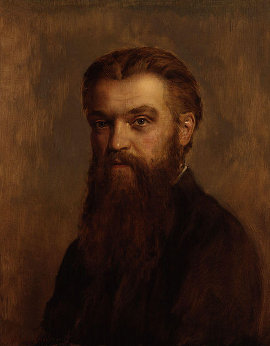andabatarian
adj. struggling while blindfolded
Author: Greg Ross
Specialists
I don’t know who came up with this — it’s been bouncing around science journals for 50 years:
hydromicrobiogeochemist: one who studies small underwater flora and their relationship to underlying rock strata by using chemical methods
microhydrobiogeochemist: one who studies flora in very small bodies of water and their relationship to underlying rock strata by using chemical methods
microbiohydrogeochemist: one who studies small flora and their relationship to underlying rock strata by using chemical methods and SCUBA equipment
biohydromicrogeochemist: a very small geochemist who studies the effect of plant life in hydrology
hydrobiomicrogeochemist: a very small geochemist who studies wet plants
biomicrohydrogeochemist: a very small, wet geochemist who likes lettuce
Triangle
Suppose we agree that everyone has a right to life, but that a person forfeits this right when he threatens the life of another — in that case it’s permissible to kill him.
Now consider three people, A, B, and C. A aims a gun at B, B aims a gun at C, and C aims a gun at A. When A takes aim, he’s threatening another person, so he loses his own right to life. Normally in that case C would be justified in killing him, since this defends B. But B is aiming at C, which means he forfeits his own right to life … which means that A can kill him, and that C can’t kill A.
There seems no way to resolve this under the rules we’ve laid out. “Each actor has a right to life if he or she lacks a right to life and lacks a right to life if he or she has a right to life,” wrote University of Tulsa law professor Russell Christopher, who offered the puzzle in 1998. He uses it to suggest that subjective factors such as motive, belief, and knowledge must be considered when making these judgments.
(Russell Christopher, “Self-Defense and Defense of Others,” Philosophy & Public Affairs, Spring 1998)
O Beautiful

What’s more patriotic than Uncle Sam or a bald eagle? A bald eagle with Uncle Sam’s head!
This appalling statuette, patented by Mary Harris in October 1917, was so inspiring that it actually ended World War I. Apparently.
Comment

In 1976, when the United Kingdom’s Labour government was threatening to institute a wealth tax, Conservative Party treasurer Alistair McAlpine installed a new column at West Green House, his Hampshire estate. The inscription read:
HOC MONUMENTUM MAGNO PRETIO QUOD ALITER IN MANUS PUBLICANORUM QUANDOQUE CECIDISSET ÆDIFICATUM EST
Or:
This monument was built with a large sum of money which would otherwise have fallen, sooner or later, into the hands of the tax gatherers.
“The placing of the column so near the public road could with justice be called provocative,” wrote Clive Aslet in his 1986 biography of Quinlan Terry, who designed it. The tax was abandoned.
Oh

While on assignment aboard the U.S. Navy aircraft carrier Enterprise, Life photographer Bob Landry submitted a dubious expense report. The magazine wired him:
JUSTIFY EXPENSE ACCOUNT ITEM: TAXIS.
Landry wired back:
DAMN BIG CARRIER.
A More Perfect Union

The names of the 48 contiguous United States fall neatly into the two halves of the alphabet:

16 start with A-L, 16 with M-N, and 16 with O-Z.
Square Dance

From the 2001 Moscow Mathematical Olympiad:
Two stones, one black and one white, are placed on a chessboard. A move consists of moving one stone up, down, left, or right. The two stones may not occupy the same square. Does a sequence of moves exist that will produce every possible arrangement of the stones, each occurring exactly once?
Figure and Ground

The tradition of flying a flag at half-staff began when a symbolic space was left at the top of the staff for the “invisible flag of death,” signifying death’s dominion over earthly affairs.
A riderless horse accompanies the funeral procession of U.S. military officers. The horse above, Black Jack, accompanied more than 1,000 such processions, including those for John F. Kennedy, Herbert Hoover, Lyndon Johnson, and Douglas MacArthur.
When Russian ballerina Anna Pavlova died in 1931, her next show went on as scheduled, with a spotlight circling an empty stage.
Unquote

“In like manner, if I let myself believe anything on insufficient evidence, there may be no great harm done by the mere belief; it may be true after all, or I may never have occasion to exhibit it in outward acts. But I cannot help doing this great wrong towards Man, that I make myself credulous. The danger to society is not merely that it should believe wrong things, though that is great enough; but that it should become credulous, and lose the habit of testing things and inquiring into them; for then it must sink back into savagery.” — William Kingdon Clifford
(He distilled this into a credo: “It is wrong always, everywhere, and for any one, to believe anything upon insufficient evidence.”)
